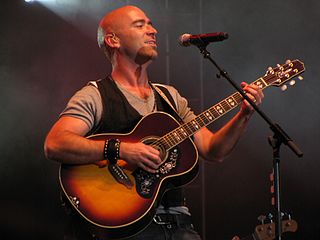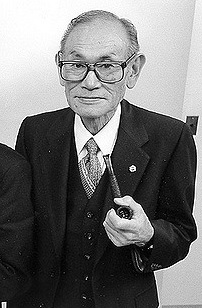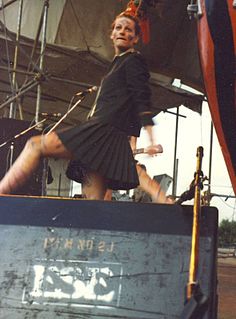A Quote by Edwidge Danticat
In the 1980s, when people were just beginning to talk about AIDS, there were just a few categories of those who were at high risk: homosexuals, hemophiliacs, heroin addicts, and Haitians. We were the only ones identified by nationality.
Related Quotes
It seemed from the media that we were being told that all Haitians had AIDS. At the time, I had just come from Haiti. I was twelve years old, and the building I was living in had primarily Haitians. A lot of people got fired from their jobs. At school, sometimes in gym class, we'd be separated because teachers were worried about what would happen if we bled. So there was really this intense discrimination.
Kools and Newports were for black people and lower-class whites. Camels were for procrastinators, those who wrote bad poetry, and those who put off writing bad poetry. Merits were for sex addicts, Salems were for alcoholics, and Mores were for people who considered themselves to be outrageous but really weren't.
Loving people, and allowing yourself to be loved, was only worth the risk if the odds were in your favor, but they quite clearly weren't. There were about seventy-nine squillion people in the world, and if you were very lucky, you would end up being loved by fifteen or twenty of them. So how smart did you have to be to work out that it just wasn't worth the risk?
In the earliest years of the AIDS crisis, there were many gay men who were unable to come out about the fact that their lovers were ill, A, and then dead, B. They were unable to get access to the hospital to see their lover, unable to call their parents and say, 'I have just lost the love of my life.'
Before the war, my parents were very proud people. They'd always talk about Japan and also about the samurai and things like that. Right after Pearl Harbor, they were just real quiet. They kept to themselves; they were afraid to talk about what could happen. I assume they knew that nothing good would come out of it.
Handwritten political posters - often composed in an artless and unadorned style, usually just words on plain white paper - were ubiquitous in South Korea in the 1970s and 1980s and were one of the few outlets available for expressing political views. Most posters were anonymous and put up under the cover of night.
I'd be at someone's house or be up on the roof all day and I'd get lonely - stir crazy - and talk radio became this soothing voice in my life. But the idea that I was making $10 an hour and stacking drywall while these guys were making a few hundred thousand, and they were having a party, and there were Playmates and there were good times, I just couldn't imagine it.
The 1980s were such a shock for me. I was really young, obviously, and The Slits were just mutilated. We were totally sabotaged to such a point that we were put out in exile. So that was the best way for me to spend the '80s: in the jungle, naked. Maybe there are more options now, and there's more girl groups. The only thing good that came out of the '80s was breakdancing.
Go back to the Bible, the Old Testament. I mean there were people who we would call intelectuals, there, they were called prophets, but they were basically intelectuals: they were people who were doing critical, geopolitical analysis, talking about the decisions of the king were going to lead to destruction; condemning inmorality, calling for justice for widows and orphans. What we would call dissident intelectuals. Were they nicely treated? No, they were driven into the desert, they were imprisoned, they were denounced. They were intelectuals who conformed.
The hardest bits of my book to read were the easiest bits to write because they were the most immediate. Probably because I had never stopped thinking about them on some level. Those bits I was just channelling and those were the most exciting writing days. The bits I found harder were the bits that happen in between, you know, the rest of living. There were whole years, whole houses, that I just got rid of.




































